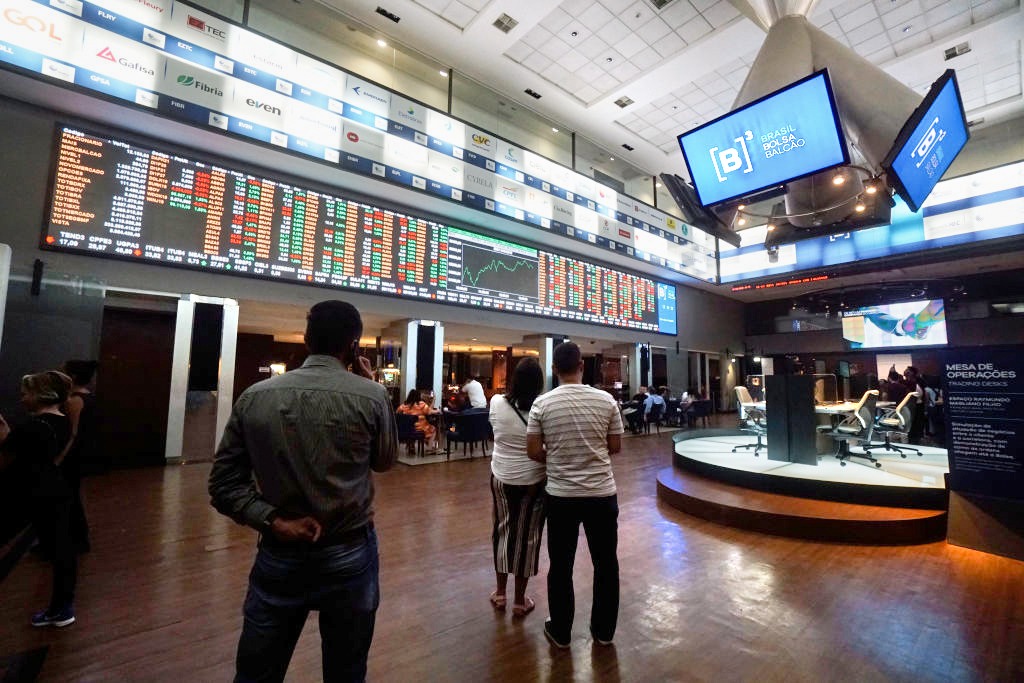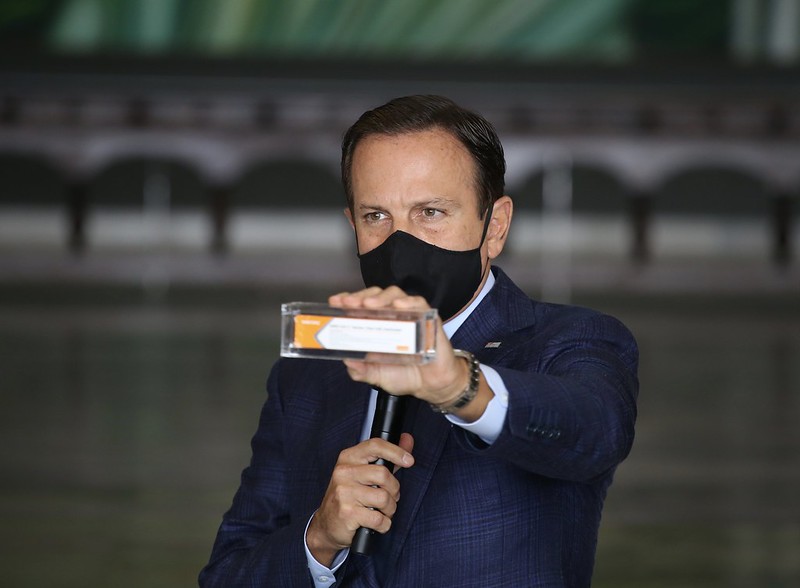RIO DE JANEIRO, BRAZIL – The IBOVESPA index closed higher on Monday, November 23rd, amid news that the vaccine developed by Oxford University in partnership with AstraZeneca showed an average efficacy of 70% in preventing the infection of subjects, reaching up to 90% in one of the administration methods.
This is the only vaccine with an agreement reached with the Brazilian federal government. According to the agreement, the local production of some 100 million doses will be conducted by the Oswaldo Cruz Foundation, at a cost of R$1.9 billion (US$380 million).
The United States President-elect, Joe Biden, who chose the ex-president of the Federal Reserve, Janet Yellen, as Treasury secretary, according to the Wall Street Journal, also contributed to market optimism. The American stock markets picked up gains towards the end of trading and closed the day with highs of between 0.22% and 1.12%.

In Brazil, the IBOVESPA climbed 1.26%, to 107,378 points with financial volume traded at R$28.45 billion. It was the highest benchmark closing level since February 21st when the main B3 index closed the session at 113,681 points.
Meanwhile, the commercial dollar recorded a 0,88% appreciation at R$5,432 buying and R$5,433 selling. The dollar futures maturing in December recorded a 1,16% rise, at R$5,443 after-market.
The rate began to rise when news emerged that the government’s political wing intends to extend the Emergency Aid for two or three months at the start of 2021, worsening the perspectives for the normalization of the fiscal situation.
In the interest rate futures market, the DI for January 2022 rose four basis points to 3.40%, the DI for January 2023 rose nine basis points to 5.20%, the DI for January 2025 advanced eight basis points to 7.04% and the DI for January 2027 recorded a positive variation of four basis points to 7.80%.
Among the indicators, financial market economists project a lower drop for Gross Domestic Product (GDP) in 2020, according to the Central Bank’s Focus Report. From a drop of 4.66% last week, now the average projection is for a 4.55% contraction. For 2021, the projection for GDP growth was raised from 3.31% to 3.40%.
In relation to the Broad National Consumer Price Index (IPCA) the average projection rose from 3.25% to 3.45% in 2020 and from 3.22% to 3.40% in 2021.
For the exchange rate, economists have lowered their dollar projections for the end of 2020, down from R$5.41 to R$5.38. In 2021, the projections remained at R$ 5.20.
For the basic interest rate, SELIC, estimates remained at 2.00% per year for 2020 but were raised from 2.75% to 3.00% per year for 2021.
Investors are still keeping an eye on Minister of Economy Paulo Guedes’ remarks, in three events on Monday.
Guedes advocates 2021 cap
In an interview published on Sunday in the newspaper Valor, Guedes said that Brazil is following the International Monetary Fund’s (IMF) recommendation to maintain economic support during the Covid crisis, but stated that the government intends to stop spending above the cap as of 2021.
“We have twice extended the emergency aid. We renewed it for the first time at R$600. Then we renewed it again until the end of the year but this time at R$300. We are already doing what they are suggesting. We have been gradually phasing it out”, he said.
The government’s decree of public calamity due to the pandemic expires in late December. Unless it is renewed, the government will lose the power to run up unlimited debts, thereby ending the special budget introduced to offset the impact of the pandemic.
As a result, programs such as the Emergency Aid, Emergency Benefit, and the PRONAMPE, a program designed to help micro and small businesses, are left with no funds.
The regular 2021 Budget is limited by the spending cap and is almost entirely committed to permanent expenses, such as salaries for employees and Social Security. The government is seeking ways to enable a larger program than the ‘Bolsa Família’ (Family Grant) in Congress that does not exceed the spending cap, but so far has been unsuccessful.
In his interview to Valor, Guedes stated that the government’s plan is to resume the fiscal pattern limited to the spending cap in January. The growth driver would then be private investments that, in his opinion, would be fostered by new regulatory frameworks, such as sanitation, natural gas, coastal shipping, electricity sector, oil, and 5G.
Of these, the only approved measure in force is sanitation. “We are approving the new regulatory frameworks precisely to convert the cyclical rebound based on consumption into a resumption of self-sustained growth based on investments,” said the Minister.

Vaccination in Brazil
Late last week, the São Paulo state government received the first 120,000 doses of the CoronaVac, a vaccine against Covid-19 produced by the Chinese laboratory Sinovac, in partnership with the Butantan Institute in Brazil.
The state government signed an agreement for the purchase of 46 million doses of the product and technology transfer to the Butantan Institute, which, however, will only have autonomy to produce the vaccines in a few years. The CoronaVac is undergoing phase 3 trials.
On Friday, ANVISA (National Health Regulatory Agency) authorized a change in the clinical trials protocols of the vaccine against Covid developed by AstraZeneca and Oxford University. According to the information gathered, this is a change in the statistical analysis of the trial results. The change occurred one day after data on the vaccine’s phase two trials were published.
In addition, a document was signed in August between the government of Paraná and the Gamaleya Research Institute, linked to the Russian government, for the local production of the Sputnik V vaccine, which already had preliminary results of its phase 3 trials released in early November, although not yet published in independent scientific journals.
Clinical trials of the product developed by BioNTech and Pfizer, and the product developed by Janssen in partnership with Johnson & Johnson are also taking place in Brazil. However, there is still no agreement signed by the country to buy these products.
The federal government states that it is considering the purchase of vaccines from Janssen, Gamaleya Research Institute, Moderna, and India’s Covaxin.
Highest stock price rises:
| Asset | Variation % | Value (R$) |
|---|---|---|
| PRIO3 | 6.94284 | 46.21 |
| CSNA3 | 6.75338 | 21.34 |
| BRFS3 | 5.81731 | 22.01 |
| PETR4 | 5.66596 | 24.99 |
| USIM5 | 4.98221 | 11.8 |
Greatest stock price drops:
| Asset | Variation % | Value (R$) |
|---|---|---|
| CRFB3 | -5.19863 | 19.33 |
| PCAR3 | -3.35616 | 70.55 |
| CIEL3 | -3.07692 | 3.78 |
| MGLU3 | -2.72727 | 23.54 |
| HYPE3 | -2.65345 | 30.45 |
Source: InfoMoney

